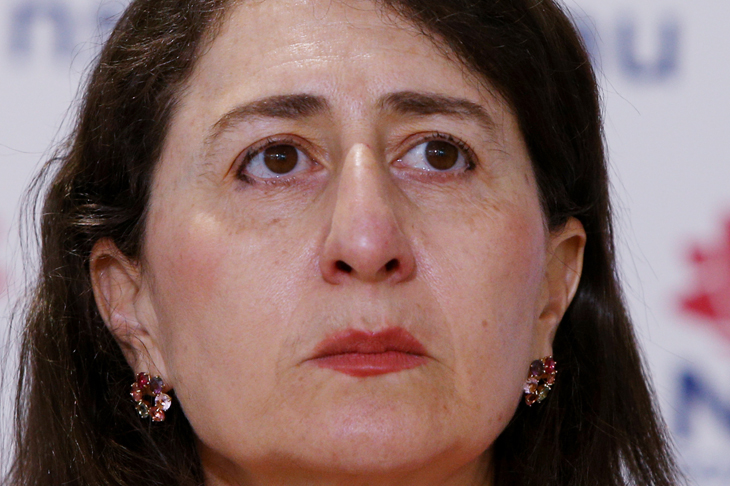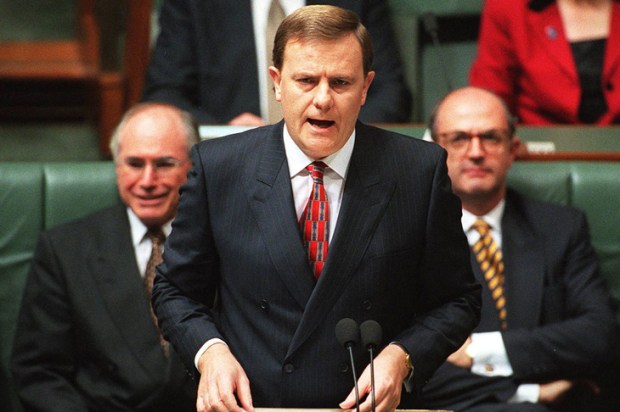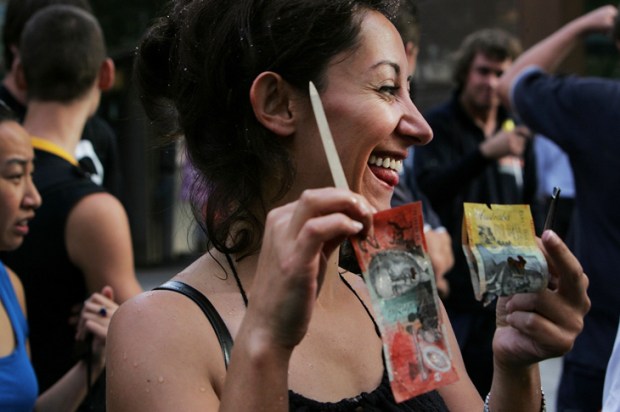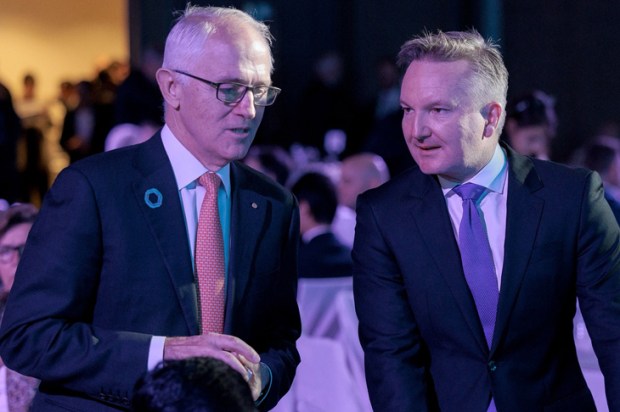One of the pitfalls of being a regular columnist is that sometimes you speak too soon. OK, sometimes you get things wrong.
Earlier this year, I wrote positively about the Berejiklian government’s ‘mature’ approach to the management of Covid. Rather than immediately grab some convenient health order to impose a range of restrictions, the premier of NSW said all the right things, even did most of the right things.
Her state’s track-and-trace system was world-best practice – or so we were led to believe – and disease outbreaks could be managed in a targeted way that allowed most of the good burghers of the largest state to get on with life. Schools were open; pubs, clubs and restaurants welcomed patrons; lots of workers went to work; and no one talked about ‘illegal family gatherings’.
Well, that was then. But ever since an unvaccinated driver caught the Delta strain – I’m not blaming the driver – it’s been mismanagement central in NSW. This was notwithstanding the quietly expressed initial reservations about lockdowns uttered by Treasurer Dominic Perrottet. (Having six children at home pretending to be educated might partly explain his attitude.)
And here’s something you may think is an odd thing to write: Gladys made the fatal mistake of failing to go early and hard given the initial decision to impose some freedom-sapping restrictions on large swaths of the NSW population. After all, it’s basically an untestable hypothesis whether harsh restrictions actually work. The Berejiklian government would have been well-advised to skip the lockdown-lite stage and head straight for the nuclear option.
Why do I say this? Essentially because terrified, fear-mongering journalists – and I’m not just thinking here those employed by the ABC and Nine Entertainment, but also bizarrely one Sky News journalist – interpreted those first limited restrictions as a sign of weakness and likely to be ineffective. And when the number of cases continued to rise, they declared that they had been right all along.
Let’s face it, Dan the Man down in Victoria fully understands that the management of Covid is as much a political exercise as it is a health one. Unless the government gets the commentariat on board and with it the chattering classes, it’s a highway to political pain and frustration.
You only have to look at opinions on the state governments’ responses to Covid. Having clocked up 200 days in lockdown and with no end in sight to the current restrictions in Victoria, 56 per cent of Victorians still approve of the state government’s pandemic response. This is only slightly down on the figure of 59 per cent recorded at the end of last year.
In NSW, it’s a different matter. At the end of last year, 75 per cent of respondents approved of the Berejiklian government’s response to Covid; this is now only 42 per cent. (The figures are alarmingly high in the other states, particularly Western Australia at 87 per cent.) In other words, the public has little confidence in Gladys’s management of the pandemic which bodes badly for the various escape routes from the restrictions.
But let me quickly add here that while I was wrong to praise the skills of the NSW government in dealing with Covid – it was clearly just a short-term aberration – I was on the money when it came to criticising other aspects of the workings of government in that state. I was just possibly not putting enough into the bank account when it came to condemning the Berejiklian government.
When you have a fervent green-leftie such as Matt Kean on a mission to close down all affordable baseload power in the state, to be replaced by intermittent wind and solar requiring massive subsidies from the taxpayer, you know it’s not going well. Gladys couldn’t sign the piece of paper quickly enough committing the state to net zero emissions by 2050.
And for all the carry-on about Perrottet being an innovative Treasurer, his last budget – its relevance lasted a few days only, making this a record, perhaps – demonstrated all the hallmarks of a big spending, leftie politician.
To be sure, he has tried to capture the ‘intellectual’ financial journalists by establishing a state productivity commission, putting out a state intergenerational budget and toying with the idea of ditching stamp duties on house sales and replacing them with annual property taxes.
Then there is Perrottet’s biggie: the NSW Generations (Debt Retirement) Fund – a blatant attempt to piggyback on the widely admired Future Fund. The trouble with Perrottet’s brainwave (should this be brainsnap?) is that instead of using the proceeds from asset sales, what is being proposed is that the NSW government borrow $10 billion cheaply so that financial grifters, either directly or indirectly employed by the government, can operate a giant hedge fund and pick up large fees for their efforts.
You might hope that this is just some sort of bad joke and the government has no intention of going ahead with what is an extraordinarily risky – nay, reckless – course of action. It’s nothing like the Future Fund, the capital of which came from the sale of the final tranche of Telstra for the sole purpose of funding the Commonwealth’s superannuation liabilities.
But it turns out that Perrottet has a history of being attracted to creative, deceptive accounting tricks. In 2015 when he was Minister for Finance, he oversaw the creation of Transport Asset Holding into which all the public transport assets were shovelled. In this way, the substantial losses that public transport incurs (some understandable, the rest the result of massive feather-bedding and inefficiency) were shifted off balance sheet and did not affect the budget outcomes being reported by the NSW government.
As a result of a change to public sector accounting standards, this device looked as though it had had its day and the losses would need to be consolidated into the general government account. But this did not prevent hundreds of thousands of dollars being spent on expensive consultant advice and an unresolvable rift developing between the Secretary to the Treasury and the head of the Department of Transport, with the latter being forced out.
It turns out that the conduct of the Berejiklian government is at least as bad as most of the other state governments in non-Covid matters and it now deserves the wooden spoon for Covid.
Got something to add? Join the discussion and comment below.
Get 10 issues for just $10
Subscribe to The Spectator Australia today for the next 10 magazine issues, plus full online access, for just $10.
You might disagree with half of it, but you’ll enjoy reading all of it. Try your first month for free, then just $2 a week for the remainder of your first year.














Comments
Don't miss out
Join the conversation with other Spectator Australia readers. Subscribe to leave a comment.
SUBSCRIBEAlready a subscriber? Log in